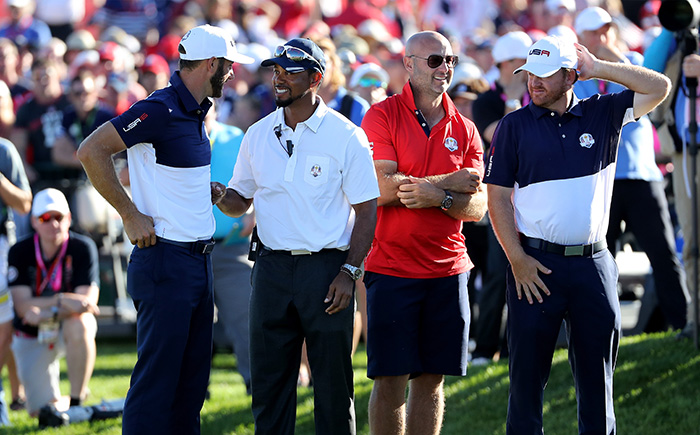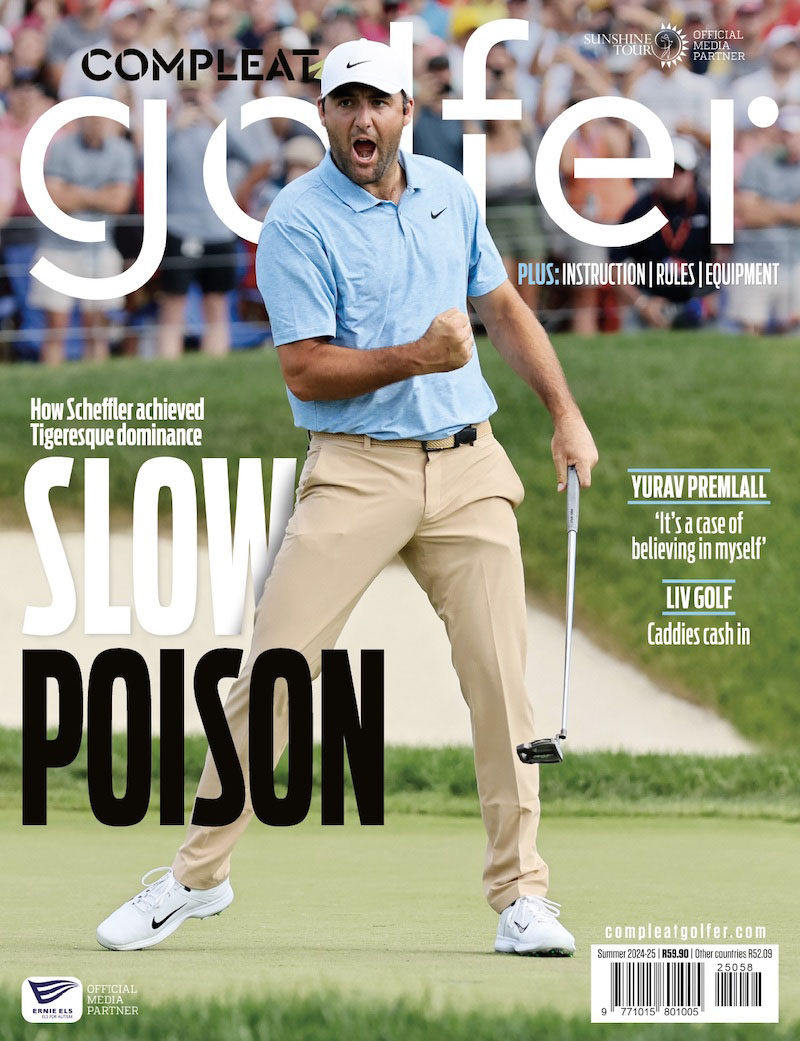The Ryder Cup is one of the biggest golf tournaments in the sport, and the significance of it being held in Minnesota is not lost on me as an American following it from South Africa. A golf tournament in a country whose social issues are on full display for the world to see should provide ample opportunity for American golfers to speak on police violence, especially considering Minnesota has strong examples of it, writes Grant Miller.
The athletes remain silent, likely because of American golf’s racial history, including segregated golf courses and the Masters hosting its first African-American golfer as late as 1975, but now is a good time to show some social consciousness. Tennis player Serena Williams has thrived in a sport that is also known for its tense racial dynamics, and she chose to speak up this week. ‘Why did I have to think about this in 2016?’ she said. ‘Have we not gone through enough, opened so many doors, impacted billions of lives? But I realized we must stride on- for it’s not how far we have come but how much further still we have to go. I then wondered why have I spoken up? I had to take a look at me.’
Will there be a golfer in the Ryder Cup who decides to look at himself the same way Williams did and speak up?
When I arrived in Cape Town my roommates asked me about police brutality against black Americans because they watched footage of people getting gunned down by law enforcement. One of those recent videos showed the death of Philando Castile in Falcon Heights, Minnesota. Castile’s fiancé, Diamond Reynolds, live-streamed Castile’s last moments on Facebook after Officer Jeronimo Yanez shot him. Castile allegedly reached for his wallet after he told Yanez that he had a firearm and was licensed to carry. The shooting is under investigation, and Castile’s tragic death made national headlines, but it wasn’t the only case of police brutality in Minnesota. In August of 2012, St. Paul police officer Jesse Zilge kicked Eric Hightower in the chest during an arrest, even though he had already chemical sprayed Hightower, who was on the ground and not resisting. Hightower was charged with aggravated stalking, terroristic threats and property damage against his ex-girlfriend. Zilge wasn’t charged for the kick.
After NFL quarterback Colin Kaepernick kneeled during the national anthem earlier this month, other professional, college, and high school athletes have kneeled, raised their fists, and even laid down with their hands raised in protest against police brutality. NBA players are now discussing how they will, or won’t, protest when their season comes up. So what about American golfers? What do they think about studies showing that an unarmed black male is five times more likely to get shot by American police than an unarmed white male? They all likely have opinions, but are unlikely to express them. Golf isn’t a very diverse sport in the US, and the Ryder Cup is no different with an all-white American team, except for Rickie Fowler and (vice captain) Tiger Woods.
Perhaps American golfers are so silent about police brutality against black Americans because racism is so commonplace. Woods endured numerous racist comments throughout his career. Fuzzy Zoeller and Sergio Garcia both implied that Woods served them fried chicken. Kelly Tilgham joked about lynching Woods in a back alley. Former caddie Steve Williams said he wanted to ‘shove it up his black a***hole.’ There has been no outcry about racist slurs in the sport, but when black people are suffering from police violence at a disproportionate rate and need voices of knowledge and empathy, the professionals are silent. This is problematic when you consider the contributions black athletes have made to golf, especially Woods, who became the first African-American golfer to win the Masters in 1997, when he was also the youngest winner with a record-setting 12-stroke margin of victory.
Woods is the most successful black man in golf’s history, unless you ask him. He calls himself Cablinasian, which doesn’t exclude his African lineage, but doesn’t place any emphasis on it either. He has the right to identify with whatever race he chooses, but one must wonder if American police would shoot him based on his skin color or his creative self-identification. Black males are stereotyped as hostile and threatening in the US, and even black boys are perceived as older and less innocent than their white counterparts. Cleveland police officer Timothy Leohmann shot Tamir Rice within two seconds of seeing him because he was playing with a toy gun, even though Ohio is an open-carry state. Assistant Prosecutor Matthew Meyers said Rice, a 12-year-old, could have passed for someone much older, according to the Los Angeles Times. The grand jury decided not to charge Leohmann. Woods remains silent right now, but that may change if and when this issue affects him or his children. Williams shared her thoughts on how police brutality may affect her family.
‘Today I asked my 18 year old nephew (to be clear he’s black) to drive me to my meetings so I can work on my phone #safteyfirst,’ she wrote in a public statement. ‘In the distance I saw cop on the side of the road. I quickly checked to see if he was obliging by the speed limit. Then I remembered that horrible video of the woman in the car when a cop shot her boyfriend. All of this went through my mind in a matter of seconds. I even regretted not driving myself. I would never forgive myself if something happened to my nephew. He’s so innocent. So were all “the others.”’
Athletes are not required to speak on social issues, but there is value in using a large platform to build awareness and promote change. Kaepernick sees that value, along with other superstar athletes like LeBron James, Dwayne Wade, Carmelo Anthony, Megan Rapinoe, and Williams. Will golfers remain silent? Will they compete in Minnesota, collect their money, and move on? Socially conscious athletes in America are bucking tradition and demanding change. It’s time American golf showed itself as more than just a sport for the affluent who prefer to stay silent when the very blackness they mock can be the difference between life and death. Does the Ryder Cup care about the citizens in the state where it’s held? Or does it only concern itself with those who have the status to participate? The silence before the tournament shows us the latter, but perhaps that can change because it should. As Dr. Martin Luther King Jr. once said, ‘A time comes when silence is betrayal.’








